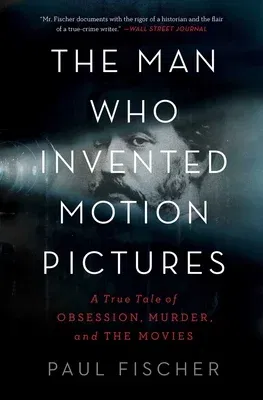One of the New York Times Best True Crime of 2022
A "spellbinding, thriller-like" (Shelf Awareness) history about the
invention of the motion picture and the mysterious, forgotten man behind
it--detailing his life, work, disappearance, and legacy.
The year is 1888, and Louis Le Prince is finally testing his "taker" or
"receiver" device for his family on the front lawn. The device is meant
to capture ten to twelve images per second on film, creating a
reproduction of reality that can be replayed as many times as desired.
In an otherwise separate and detached world, occurrences from one end of
the globe could now be viewable with only a few days delay on the other
side of the world. No human experience--from the most mundane to the
most momentous--would need to be lost to history.
In 1890, Le Prince was granted patents in four countries ahead of other
inventors who were rushing to accomplish the same task. But just weeks
before unveiling his invention to the world, he mysteriously disappeared
and was never seen or heard from again. Three and half years later,
Thomas Edison, Le Prince's rival, made the device public, claiming to
have invented it himself. And the man who had dedicated his life to
preserving memories was himself lost to history--until now.
The Man Who Invented Motion Pictures pulls back the curtain and
presents a "passionate, detailed defense of Louis Le Prince...unfurled
with all the cliffhangers and red herrings of a scripted melodrama"
(The New York Times Book Review). This "fascinating, informative,
skillfully articulated narrative" (Kirkus Reviews, starred review)
presents the never-before-told history of the motion picture and sheds
light on the unsolved mystery of Le Prince's disappearance.

